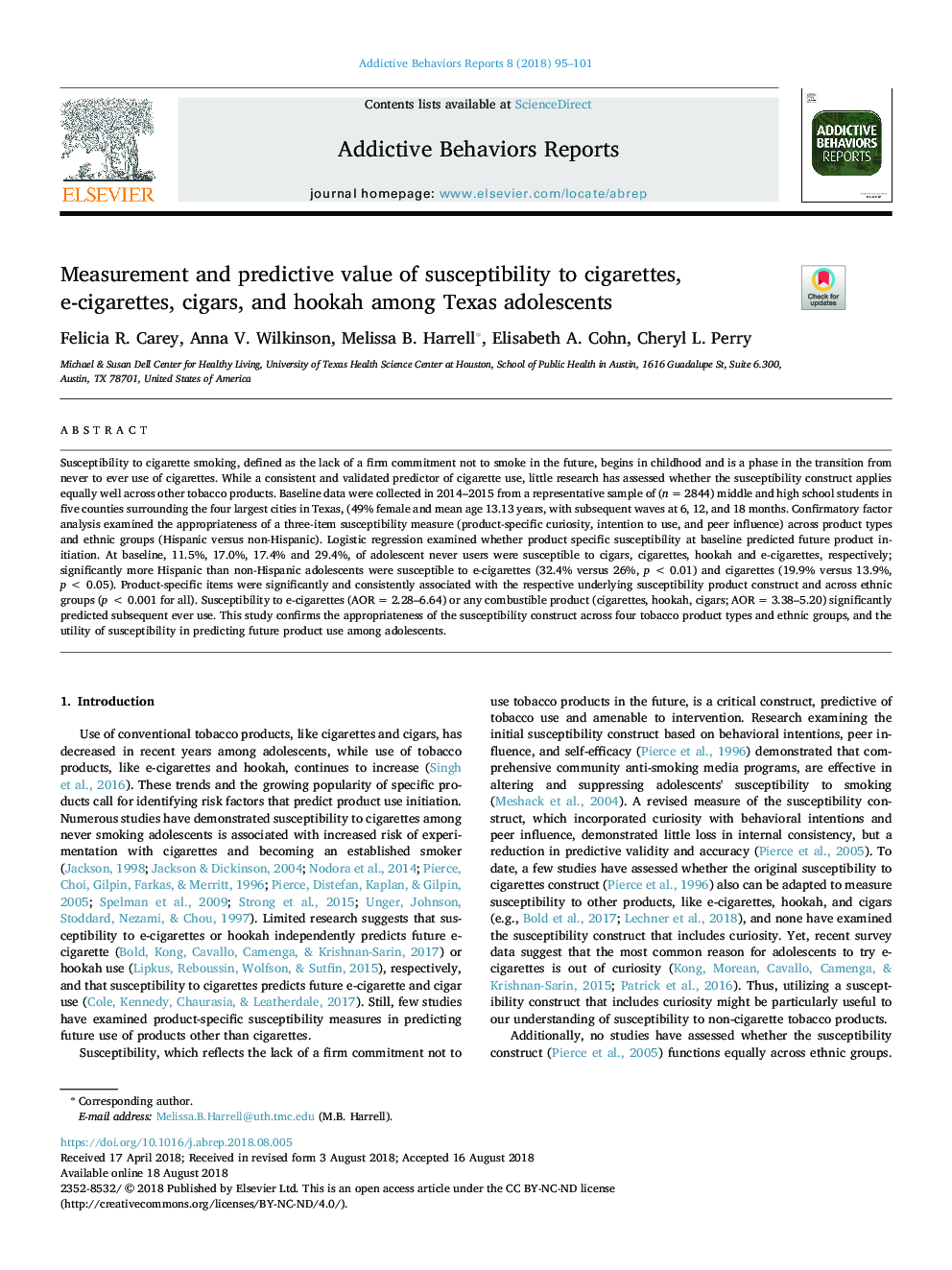| Article ID | Journal | Published Year | Pages | File Type |
|---|---|---|---|---|
| 11004443 | Addictive Behaviors Reports | 2018 | 7 Pages |
Abstract
Susceptibility to cigarette smoking, defined as the lack of a firm commitment not to smoke in the future, begins in childhood and is a phase in the transition from never to ever use of cigarettes. While a consistent and validated predictor of cigarette use, little research has assessed whether the susceptibility construct applies equally well across other tobacco products. Baseline data were collected in 2014-2015 from a representative sample of (nâ¯=â¯2844) middle and high school students in five counties surrounding the four largest cities in Texas, (49% female and mean age 13.13â¯years, with subsequent waves at 6, 12, and 18â¯months. Confirmatory factor analysis examined the appropriateness of a three-item susceptibility measure (product-specific curiosity, intention to use, and peer influence) across product types and ethnic groups (Hispanic versus non-Hispanic). Logistic regression examined whether product specific susceptibility at baseline predicted future product initiation. At baseline, 11.5%, 17.0%, 17.4% and 29.4%, of adolescent never users were susceptible to cigars, cigarettes, hookah and e-cigarettes, respectively; significantly more Hispanic than non-Hispanic adolescents were susceptible to e-cigarettes (32.4% versus 26%, pâ¯<â¯0.01) and cigarettes (19.9% versus 13.9%, pâ¯<â¯0.05). Product-specific items were significantly and consistently associated with the respective underlying susceptibility product construct and across ethnic groups (pâ¯<â¯0.001 for all). Susceptibility to e-cigarettes (AORâ¯=â¯2.28-6.64) or any combustible product (cigarettes, hookah, cigars; AORâ¯=â¯3.38-5.20) significantly predicted subsequent ever use. This study confirms the appropriateness of the susceptibility construct across four tobacco product types and ethnic groups, and the utility of susceptibility in predicting future product use among adolescents.
Related Topics
Health Sciences
Medicine and Dentistry
Psychiatry and Mental Health
Authors
Felicia R. Carey, Anna V. Wilkinson, Melissa B. Harrell, Elisabeth A. Cohn, Cheryl L. Perry,
